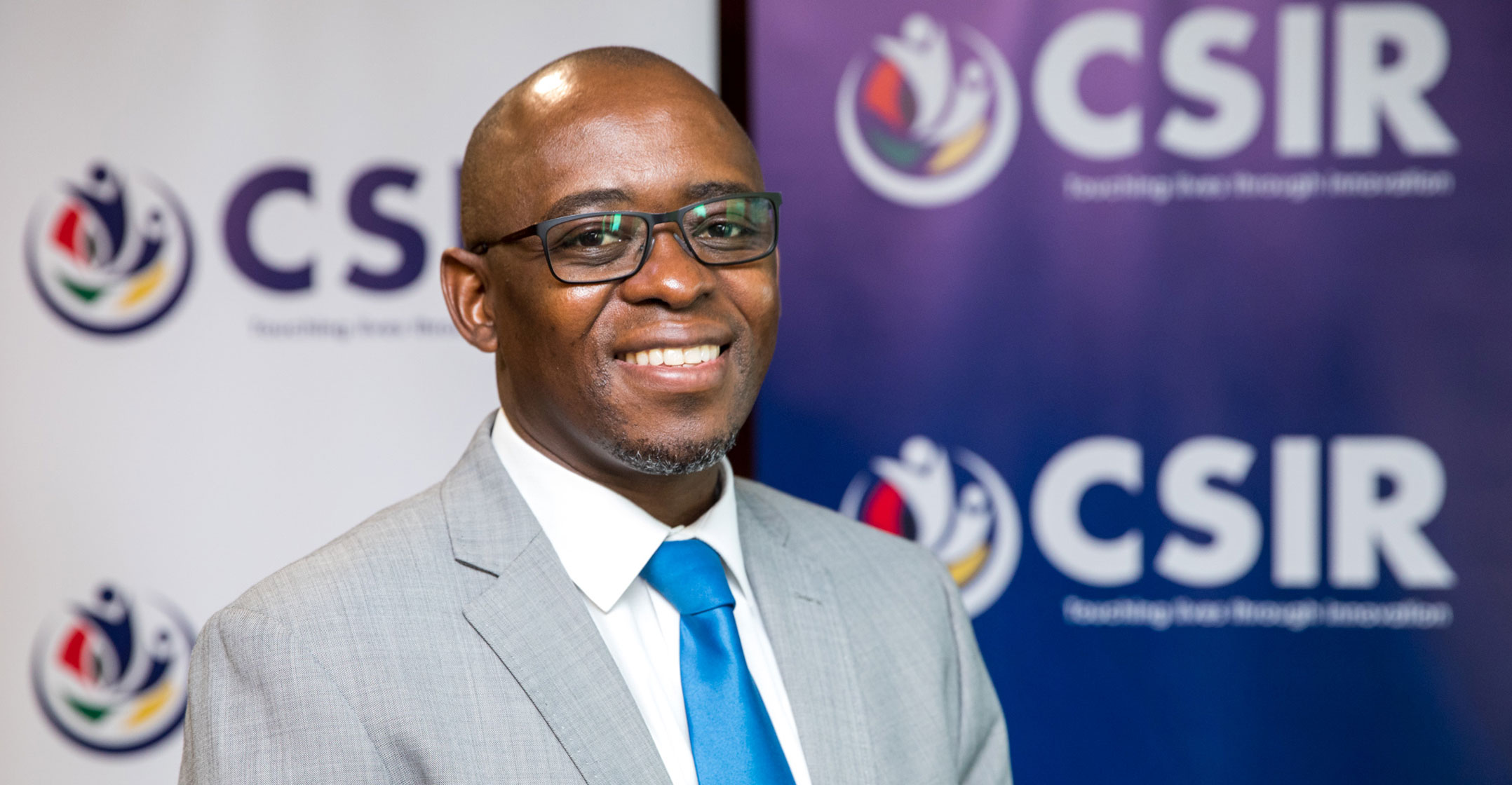
The Council for Scientific & Industrial Research (CSIR) wants to engage much more actively with the private sector as it rolls out a new strategic plan to grow its revenue from industry and reduce its reliance on public-sector income.
Speaking to TechCentral in an exclusive interview in Pretoria on Thursday, CEO Thulani Dlamini and chairman Thokozani Majozi set out how the 74-year-old institution – which was founded at the end of the second World War – intends restructuring itself to assist the private sector to a much greater degree in their research and development efforts.
Dlamini, a materials scientist who previously worked in various roles at the CSIR and later headed the R&D team at Sasol, returned as CEO in 2017, taking the reins from Sibusiso Sibisi, who now heads the Wits Business School.
He said that only 10% of the council’s revenue comes from the private sector and the intention is to grow this to at least a third in the “longer term”.
It also intends to become much more active in communicating its role in South Africa’s “national system of innovation”, said Majozi, who also serves as professor at the School of Chemical and Metallurgical Engineering at the University of the Witwatersrand.
The board approved the CSIR’s new strategy – called Project Synapse – in August 2018. It will be rolled out over the next two years, and will focus on getting the institution’s scientists, engineers and technicians to work much more closely with private-sector companies in their innovation efforts. This will help reposition the CSIR “for the future”.
Cost-cutting programme
The restructuring comes after a separate and unrelated cost-cutting programme in 2018, which saw the CSIR reduce its staff compliment by about 70 people (most of whom took voluntary severance packages) to improve its financial position, which had been deteriorating for several years.
Project Synapse, on the other hand, is about gearing the council for growth. “Most of the focus of the work at the CSIR has been on the science part, and little on the industrial part,” Majozi said. “We do fundamental research, but we also do research that promotes and supports industry. Over the years, a perception, whether correct or wrong, has been created that the CSIR has been focusing too much on the science part of its mandate. The new strategy says, ‘Let’s accentuate the industrial part of the mandate, without losing focus on the science part.’”
The CSIR is partly funded by a government grant, which makes up about 30% of its R2.6-billion in revenue. The remaining 70% is generated through contract research. However, about 80% of that contract research money comes from government and state-owned enterprises, not from the private sector. “We want to correct this. There is a lot of mileage to be gained from responding to what the private sector requires. We believe there’s big scope – we have not tapped into on the industrial side,” Majozi said.

Of the CSIR’s roughly 2 600 employees, about 1 700 are scientists, engineers and technologists. “Human capability in the CSIR is what distinguishes us as a research and technology organisation,” he said, adding that it invests about R150-million to R200-million/year in human capital development. It has a “pipeline” of about a thousand students and interns at various levels of development. “We work very hard to ensure we can protect this.”
A significant number of these students and interns don’t end up working for the CSIR, but are rather snapped up by universities and the private sector.
Securing business from the public sector, the organisation’s bread and butter, is becoming more difficult as a result of new government rules, including changes in national treasury regulations, which require it to tender for work. “It defeats the very purpose of a science council like us,” said Dlamini. “If we now have to compete with the private sector, it makes it more difficult.”
Dlamini said the restructuring will take time – at least two years – and will involve a significant culture change, new values, and a new vision and mission for the organisation.
“There are milestones along the way. The message we wish to convey is we want the CSIR to be seen as a key technology development partner for government and for business,” he said.
“The opportunity is huge for the CSIR. It makes sense (for the private sector) to partner with the CSIR because they don’t carry the risk internally; it gives them flexibility. The diversity of skills we have in the organisation can be used to support the advancement of industry in South Africa.”
‘Supportive’
The idea, Dlamini said, is to “balance the industrial relevance of the work we are doing, while not neglecting investing in the science capability for long-term sustainability of the organisation”.
He said the response from industry so far has been “supportive and positive, across the board”.
Its focus on the private sector is on the areas it has identified as its strategic strengths, namely health; chemicals; advanced food and agriculture; manufacturing; mining; defence; security; smart logistics, including transport; smart places (such as the “built” environment and the natural environment); and next-generation enterprises and institutions (broadly classified as digital transformation). This last pillar includes technologies such as the Internet of things and artificial intelligence. Each focus area has an executive manager responsible for driving growth. — © 2019 NewsCentral Media




